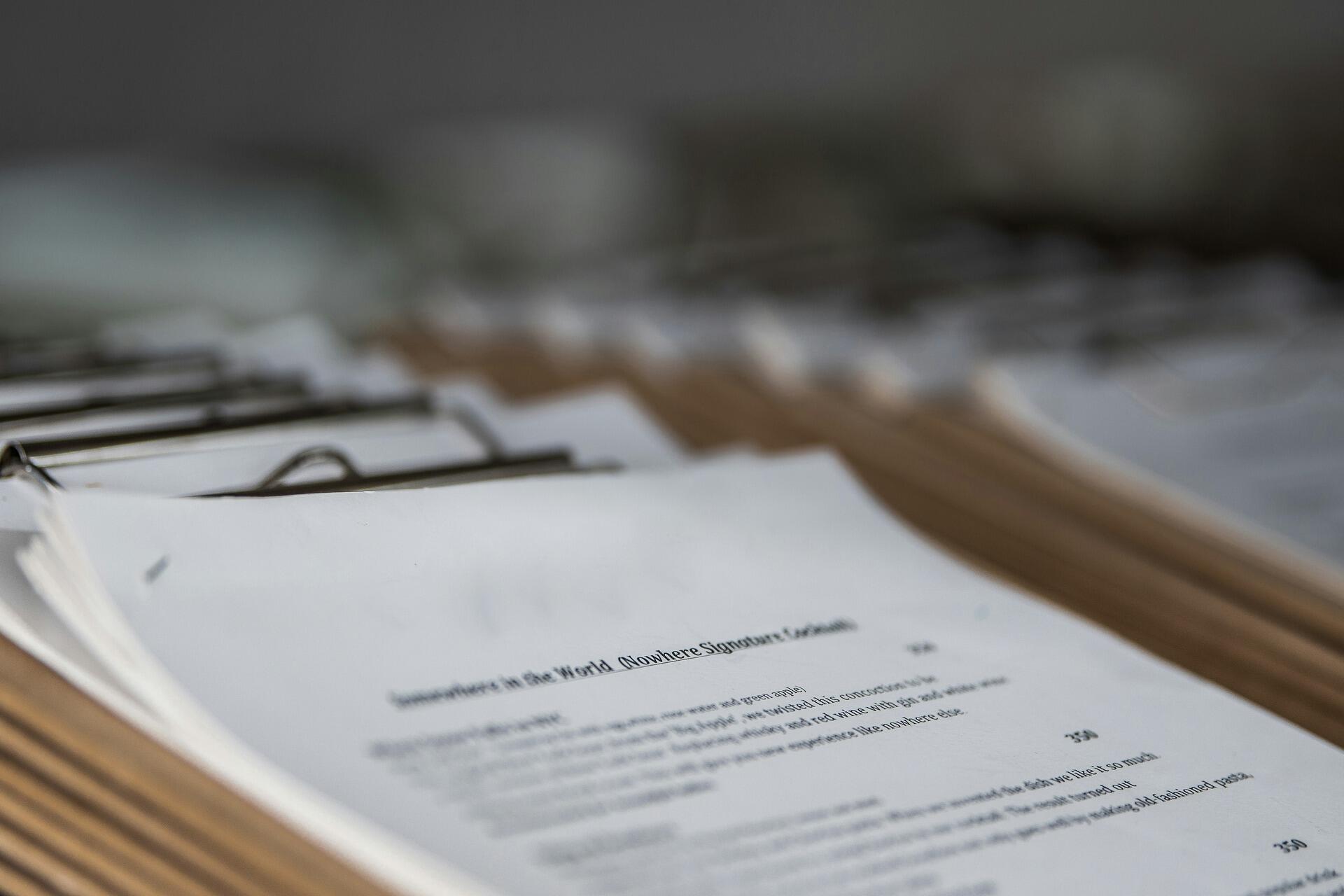What is accounting like in Malaysia?
As of 2019, there were more than 35,000 qualified accountants in the country, although it has become a target to get this number up to 60,000. Along with the fact that accounting, or perakaunan, is one of the most popular courses undertaken by young Malaysians, accounting is considered to be one of the most important services needed by businesses and corporations.
Is it easy to study accounting?
While the path towards gaining a professional accounting qualification may be challenging, it is nonetheless possible for the willing learner! Let's look at accounting in Malaysia and the list of the best books out there to guide you through ACCA and accounting.

Perakaunan Malaysia
Nearly 30% of the 600 Multimedia Super Corridor (MSC) companies in Malaysia recognise accounting as a major service in their business.
To regulate the accountancy profession in Malaysia, there exists the Malaysian Institute of Accountants, or MIA, as an agency under the Ministry of Finance. It is the role of MIA to monitor the professional conduct and ethical standards of all registered accountants, as well as regulate the auditing standards for the perakaunan profession in Malaysia.
Who sets accounting standards in Malaysia?
The Malaysian Accounting Standards Board (MASB) is in charge of issuing these accounting standards; however, the performance and the financial arrangements carried out by MASB are overseen by the Financial Reporting Foundation. Despite this domestic focus, it was announced in 2012 that Malaysia would converge with the International Financial Reporting Standards (IFRS) to facilitate comparability and increase transparency.
What are the opportunities and prerequisites to become an accountant in Malaysia?

What are the basic accounting principles and concepts?
Accounting principles are the rules that organisations have to follow when reporting their financial information. Among the famous principles adopted by businesses in Malaysia and around the world are these:
Conservatism
Also called prudence, this basic accounting principle is based on the policy of "playing safe". When making records in a company's accounting books, expenses and liabilities should be recorded as soon as possible - in contrast, revenues and assets are to be recorded only when it is confirmed to occur.
This happens because if the profits ascertained are more than the actual, the dividend may be distributed, leading to a reduction in the company's capital. However, this principle may also encourage an earlier recording of losses, causing the company to report its performance to be worse than its actual state.
Materiality
Accounting should focus on material facts. Any fact is regarded as "material" when it is reasonably believed to influence the decision-making of another party who is reading the company's financial statements. For instance, money spent on upgrading machine intelligence can be a material fact since it may increase the future earning capacity of the company.
The information about these material facts should be reported through financial statements and their accompanying notes so that interested parties can make informed decisions. It is also important to note that it may not be necessary to adhere to this principle if the amount (related to the material fact) is very small.
In 2018, the International Financial Reporting Standards (IFRS) brought back the idea of prudence, explaining it as “cautious prudence.” This means companies should avoid overstating profits or assets and make sure their reports give a fair and reliable picture of their financial health.
Objectivity
Another important one out of the accounting principles, this principle emphasises the objective recording of all accounting transactions. This means that business transactions should be free from the bias of accountants and other parties.
Keeping transactions objective is made possible through the use of verifiable documents or vouchers. For example, cash receipts and invoices can be documentary evidence for the cost of items and services, while providing an objective basis to verify these transactions. Unfortunately, objectivity may sometimes be difficult to determine because market values can vary from person to person and from place to place.
Can you name all the principles you need to know before your ACCA exam?
| Level | Focus Areas | Assessment Method | Key Learning Outcomes |
|---|---|---|---|
| Applied Knowledge | Business Technology (BT); Management Accounting (MA); Financial Accounting (FA) | Computer-based exams with multiple-choice questions | Understanding of business environments and technology; Ability to prepare and interpret financial statements; Knowledge of cost and management accounting techniques |
| Applied Skills | Corporate and Business Law (LW); Performance Management (PM); Taxation (TX); Financial Reporting (FR); Audit and Assurance (AA); Financial Management (FM) | Combination of computer-based and written exams | Application of legal principles in business; Analysis and evaluation of business performance; Preparation of tax computations and financial statements; Understanding of audit processes and financial management strategies |
| Strategic Professional | Strategic Business Leader (SBL); Strategic Business Reporting (SBR); Advanced Financial Management (AFM); Advanced Performance Management (APM); Advanced Taxation (ATX); Advanced Audit and Assurance (AAA) | Scenario-based written exams | Strategic decision-making and leadership skills; Advanced financial reporting and analysis; In-depth understanding of taxation and audit issues; Ability to evaluate and manage complex business situations |
Is there any basic accounting tutorial for students?
If you're looking to study ACCA or take up an accounting degree, an accounting tutor may be just what you need to learn about what Perakaunan is and the essential accounting skills you need to pick up to flourish in your studies.
At an average price of only RM36, Superprof brings you tutors from across Malaysia and around the world - ready to share with you their passion for accounting. Want to learn about the basic accounting concepts and theory? Not sure when to use cash-based or accrual accounting? Get the answers to these questions by visiting our list of available tutors in your area!
What if I want to learn accounting online?
Not only do Superprof tutors offer face-to-face classes, but you can also have your accounting lessons online! You can even choose a rate you are comfortable with - more experienced tutors do charge their lessons at a higher fee, however, you can opt for quality tutoring at reasonable fees, too.
Would you also like to book a lesson with a Superprof tutor?
When you click on the "Book a lesson" button in a tutor's profile, you have the opportunity to introduce yourself and tell them/her more about what you want to learn. Apart from telling him/her what you expect from the accounting lessons, you can also schedule a date for your first lesson. Book a lesson with your Superprof accounting tutor today!


What are the best books to study for the Diploma Perakaunan?
So you want to take Diploma Perakaunan in Malaysia. What books should you start with to gain a basic understanding of accounting principles and other information to succeed in your Diploma Perakaunan? Here are some book recommendations for learners at the accounting diploma level:
Do you know how much it costs to study ACCA and accounting in Malaysia?
Accounting All-in-One For Dummies
Written by Kenneth Boyd, Lita Epstein, Mark P. Holtzman, Frimette Kass-Shraibman, Maire Loughran, Vijay S. Sampath, John A. Tracy, Tage C. Tracy, and Jill G. Welytok, this book can be considered a one-stop reference for those new to accounting - even learners familiar with accounting can benefit from this book, too.
While there are many things you'll learn through the book as a student in Diploma Perakaunan, among them are ways to report financial statements, how to make informed business decisions, ways to audit, and how to detect financial fraud. The book is also a comprehensive resource for a variety of accounting principles to help you get up to speed on everything accounting.
Accounting Made Simple: Accounting Explained in 100 Pages or Less
As a licensed CPA, Mike Piper has written this book with the idea of using zero technical jargon - get to know about accounting in plain and simple English! This makes Accounting Made Simple a terrific introductory book to accounting since the information provided is quick and easy for beginner learners.
Here are some basic accounting tips you can learn from a licensed CPA:
- The Accounting Equation and why on earth it's so important
- How to read and generate financial statements
- How to prepare journal entries with debits and credits
- How to calculate depreciation and amortisation expenses
- Calculate and interpret different financial ratios
Financial Statements: A Step-by-Step Guide to Understanding and Creating Financial Reports
This is another great introductory book to accounting, written by Thomas R. Ittelson, who is an expert at translating complex financial topics in an accessible way to non-financial audiences. No accounting background is required to read this book - perfect for the learner taking Diploma Perakaunan.
The book teaches readers how to make sense of accounting vocabulary while demonstrating the structure and purpose of three major numeric statements: the income statement, the cash flow statement, and the balance sheet. You will learn about how these stakeholders contribute towards the understanding of a company's financial status, which is essential to financial reporting.
Would you also fancy a list of the best online resources for ACCA and accounting courses?

Which are the most recommended books for Ijazah Sarjana Muda Perakaunan?
Now that you've chosen to major in accounting, you might be looking for some essential books to guide you through the theory and practices in accounting. For your Ijazah Sarjana Muda Perakaunan, here are a couple of the most recommended accounting books for accounting degree students:
A Brief History of Economic Genius
How has the intersection of mathematics, business principles, and philosophy shaped the field of economics? Accounting itself is derived from the progression of mathematics and economic theory, during which important accounting principles, involving elements such as double-entry bookkeeping, were developed.
Part of succeeding in your accounting degree involves an understanding of accounting's history. If you'd like to learn about historical information in an easy-to-read manner, you'll find yourself breezing through the ideas of brilliant economists and mathematicians presented in this book by Paul Strathern.
You can also learn about the history of accounting and more when you attend tuition for ACCA in Malaysia.
Warren Buffett Accounting Book: Reading Financial Statements for Value Investing
As a person in accounting, it is crucial to understand the needs of your company and its stakeholders, especially those of its investors. Both a businessman and a philanthropist, Warren Buffett guides his readers through investment, from fundamental analysis to pure accounting research.
Very generally, the book will teach you these basic accounting ideas:
- How to calculate the intrinsic value of a company
- What a discount rate is and how it works
- Instructions for reading income statements, balance sheets, and cash flow statements
- How to determine important ratios to properly value any business
When you find what you need, you can read to succeed!

Understanding the ACCA Syllabus and Its Structure
The ACCA syllabus is carefully designed to guide students step by step through accounting, finance, and business management skills. For Malaysian learners aiming to become qualified professionals, this framework offers not only knowledge but also practical application. The balance between theory, practice, and professional ethics ensures readiness for real-world challenges in both local firms and international organisations. By exploring its structure, students can plan their study time more effectively and select the right materials for success in future exams.
Key Features of the ACCA Syllabus
- Applied Knowledge Level: This is the starting point for many students. It covers the basics of accounting, finance, and business concepts. Papers at this stage introduce areas like financial reporting, management accounting, and business technology. Malaysian students often find this stage accessible as it builds directly on principles learned in Perakaunan studies. The focus here is to provide a foundation before moving into more complex applications.
- Applied Skills Level: At this stage, the syllabus becomes more detailed, covering six papers that develop technical expertise. Topics include law, performance management, taxation, financial reporting, audit and assurance, and financial management. These subjects require a structured approach, often supported by providers such as Kaplan or BPP, who offer high-quality text and practice kit options. Students benefit from practising mock exams, solving real-life style questions, and reviewing detailed notes.
- Strategic Professional Level: The final level introduces advanced knowledge and prepares students for leadership roles. This stage has two core papers, i.e, Strategic Business Leader (SBL) and Strategic Business Reporting (SBR), alongside options in areas such as taxation, audit and assurance, and corporate performance management. This level demands a deeper commitment, with regular revision and practice reviews being vital. Students in Malaysia often combine classroom learning with self-study resources like BPP materials or ACCA-approved texts to complete their preparation.
- Flexibility and Study Resources: The ACCA syllabus offers flexibility, allowing students to progress at their own pace. Whether choosing part-time classes, tuition centres, or self-study, learners can access a variety of learning options. Some providers even offer free resources or promotional sale packages, making it easier to manage price concerns while still gaining access to quality study materials. This flexibility helps Malaysian students balance professional work with their preparation for demanding exams.
Why the Structure Matters
The progression from applied knowledge to strategic professionalism is not random; it reflects how skills should be developed. By starting with principles, moving into technical detail, and finishing with advanced professional judgement, the pathway mirrors how careers in accounting and finance typically evolve. This logical structure allows students to gradually build confidence, ensuring that by the time they face assurance or strategic reporting challenges, they already have a strong base.
For Malaysian learners, the ACCA syllabus is more than just a set of papers; it is a structured journey from foundational knowledge to becoming a globally recognised professional. With the right blend of study habits, quality materials, and consistent exam practice, students can turn this structured path into a successful career in accounting, auditing, taxation, and corporate management. By making use of resources like Kaplan, BPP, and other trusted providers, as well as engaging with mock exams and regular reviews, candidates can ensure they are fully prepared to excel.

An Overview of the ACCA Papers List
The ACCA qualification comprises a regulated set of examinations, each carefully structured to develop the breadth and depth of professional capability needed in modern accountancy practice. It spans several progressive tiers, enabling learners to build understanding incrementally – from foundational financial concepts to leadership-level strategic competence. Delivered globally under ACCA’s governance, this framework assures consistency and credibility in its qualification journey.
Structure of the ACCA Papers List
- Applied Knowledge Stage (3 papers): At the entry point, candidates progress through three foundational examinations: Business and Technology, Management Accounting, and Financial Accounting. These modules cultivate an understanding of essential business environments, cost management techniques, and the fundamentals of preparing and interpreting financial statements.
- Applied Skills Stage (6 papers): Building on the basics, this stage incorporates six technical modules: Corporate and Business Law; Performance Management; Taxation; Financial Reporting; Audit and Assurance; Financial Management. Here, learners develop detailed knowledge of the legal context, financial strategies, compliance frameworks, and audit practices—skills widely relevant across professional environments.
- Strategic Professional Stage (4 papers): At the highest level, two mandatory examinations—Strategic Business Leader and Strategic Business Reporting—set the foundation for advanced strategic thinking and reporting acumen. On top of these, candidates choose two from four specialised options: Advanced Financial Management, Advanced Performance Management, Advanced Taxation, and Advanced Audit and Assurance.
- Ethics and Professional Skills Module: Complementing the examinations, all candidates must complete a dedicated module focused on ethics, professional conduct, and critical soft skills essential to practice as trusted financial professionals
- Practical Experience Requirement: Final accreditation also rests on demonstrating relevant professional experience. Candidates are required to fulfil a practical experience requirement of 36 months in accounting-related roles, along with achieving and documenting specific performance objectives, under designated supervision
When planning your exam pathway, remember that the Malaysian Institute of Accountants (MIA) recognises ACCA as a route to membership. Aligning your paper choices and professional experience with MIA’s requirements early will save time and ensure smoother career progression locally.
Why This Structure Matters
- Progressive Learning Pathway: The staging ensures logical sequencing—starting with grasping core concepts, moving to technical proficiency, and culminating in strategic and ethical judgment. This model supports gradual competence building.
- Flexibility and Specialisation: While the core framework is fixed, the optional papers at the strategic stage introduce flexibility. Learners can tailor their pathway to match their professional interests or local regulatory needs, without losing the integrity of the qualification.
- Global Recognition and Local Relevance: ACCA’s globally consistent syllabus is also designed for real-world application. In Malaysia, for example, the qualification is statutorily recognised for public accountancy membership, underscoring its local currency. As such, this paper's list is both internationally respected and strategically aligned with national practice standards.
The ACCA papers list represents a coherent, internationally standardised pathway through professional development—from basic financial principles to strategic leadership in accountancy. It integrates technical depth, ethical training, and real-world experience, all under a regulated structure. For aspiring professionals in Malaysia as well as beyond, this design offers both credibility and flexibility, ensuring that learners are well-equipped for today's dynamic business environment and tomorrow’s leadership roles.

Essential ACCA Study Resources for Beginners
Embarking on ACCA studies without direction can be overwhelming. It helps to start with resources endorsed by authoritative bodies to ensure accuracy. Malaysian beginners, in particular, benefit from materials that speak directly to exam expectations and local conditions.
Official Digital Learning Hub
ACCA’s own digital platform provides structured, accessible learning support that aligns precisely with the syllabus. It includes interactive study chapters, quizzes, flashcards, and downloadable transcripts to reinforce learning. This resource is updated regularly, making it a reliable cornerstone for newcomers.
Practice Platform and Past Exam Papers
Learners can practice within a simulated exam environment, complete with specimen papers and past questions. This helps acclimate to time pressure and question formatting typical of the real exam. Detailed marking guidelines are also available to help understand examiner expectations and improve technique.
Examiner Insights and Study Planner Tools
Support materials from the examining body offer guidance that explains how to plan revision wisely and decode what markers look for. These include debrief videos, technical articles, examiner reports, and a planning tool to structure study time effectively.
Personalised Tutoring with Superprof
For beginners seeking tailored guidance, Superprof offers personal tutoring with significant advantages. Operating in over 50 countries and supporting more than 29 million tutors globally, it allows Malaysian students the flexibility to choose local or international instructors. Best of all, learners can trial one lesson free before committing. This makes Superprof an excellent companion to self-study.
Free Learning via ACCA-X
For those seeking an accessible introduction to the profession, ACCA’s online platform on edX offers no-cost introductory modules. These cover the fundamentals of finance and accounting in an interactive format. Learners in Malaysia can use this as a stepping-stone before moving into formal exam preparation.
Credible Study Texts and Guides
Some providers offer ACCA-approved or ACCA-endorsed study texts that distil complex topics into straightforward lessons. These are often released for free or at low cost and are designed to complement official materials by offering clearer explanations and practical examples.
For beginners in Malaysia, the most effective preparation blends official digital tools, supported practice, community engagement, and personal tutoring. The ACCA Study Hub, exam simulation platforms, mobile app, and learning community form a robust foundation. On top of these, using Superprof for tailored tutoring rounds off a comprehensive, learner-centred approach. This combination not only reinforces understanding but also builds confidence as students move steadily toward success in their ACCA journey.
Summarise with AI:
















